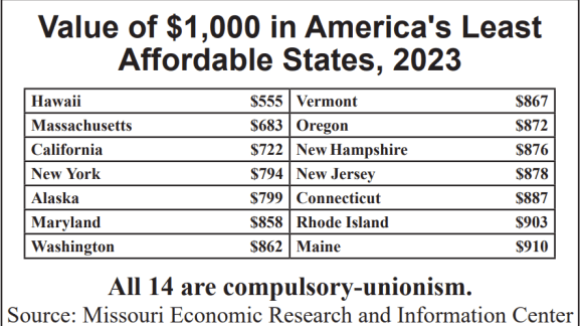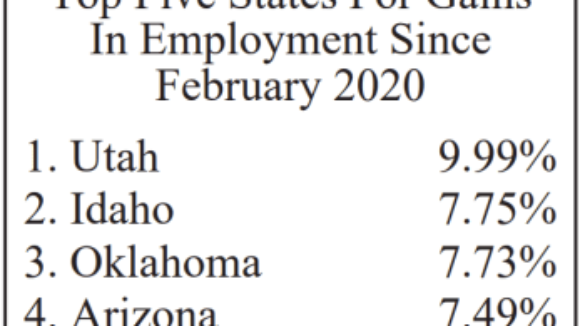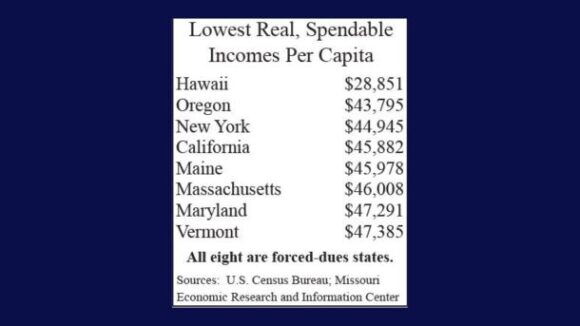Banning Compulsory Dues Curbs Cost of Living
On average, forced-unionism states are 23.2% more expensive to live in than Right to Work states. And decades of academic research show that compulsory unionism actually fosters a higher cost of living.
The Obama Administration’s take-over of General Motors contains a host of concessions to the UAW designed to keep the union bosses happy at the expense of the American public:
There’s also the labor agreement that the UAW approved last week, which goes some way toward reducing costs but probably not enough to make the new, smaller GM competitive. The new agreement simplifies some work rules and job descriptions but makes no reductions in hourly pay, pensions or health care for active workers. The agreement must also be renegotiated in two years by an Obama Administration running for re-election and weighing the need to keep Big Labor happy against the risks to taxpayer-shareholders. Who do you think wins that White House debate?
The Administration’s concessions to the UAW also restrict the company’s ability to import smaller, more fuel-efficient cars that it already makes overseas. UAW President Ron Gettelfinger boasted on PBS’s “NewsHour” last week that “we, quite frankly, put pressure on the White House, the [auto] task force, the corporation” to bar small-car imports from overseas. GM is also selling its Opel operation in Europe as part of this restructuring, and the Washington Post reports that one of Treasury’s sale conditions is that Opel’s new owners must stay out of the U.S., and even out of China, where GM’s business is strong.
This is raw trade protectionism. It is also textbook cartel behavior and would be an antitrust violation if practiced by a business. But the benefits for GM are illusory because the import limits mean the company will have to spend even more to retool its domestic plants to make the little green cars that President Obama and Congress are demanding. No one knows if Americans will buy such cars, even if GM can make them competitively in the U.S.

On average, forced-unionism states are 23.2% more expensive to live in than Right to Work states. And decades of academic research show that compulsory unionism actually fosters a higher cost of living.

Strong employment gains in Right to Work states are the reason more Americans are working now than pre-COVID.

Where forced union dues are permitted, workers and other people end up with less purchasing power.